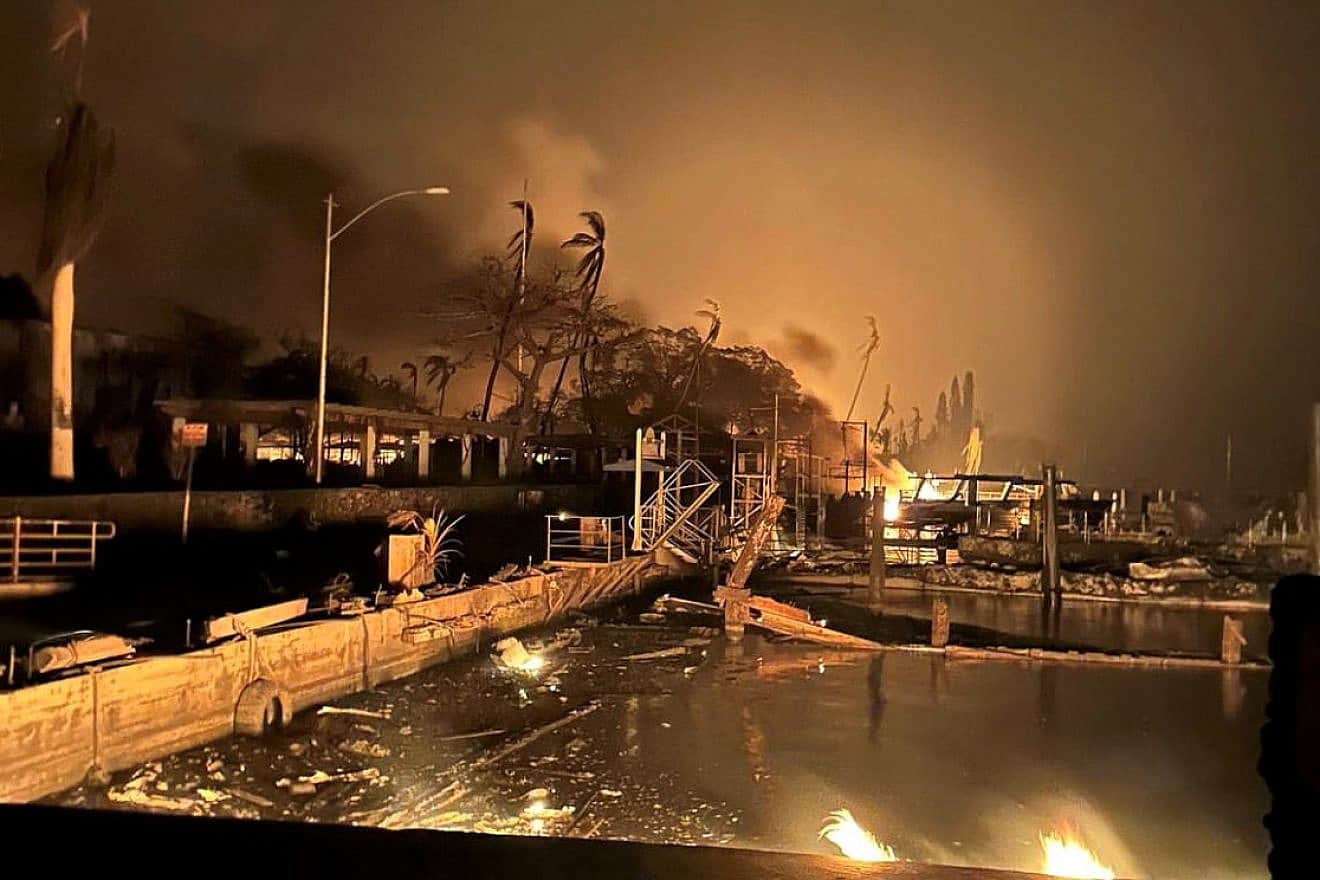As of Thursday, wildfires on the Hawaiian island of Maui have claimed 36 lives and left thousands homeless (on Friday, Aug. 11, that number had climbed to 53 fatalities), as emergency workers searched through the night on Wednesday for survivors in the charred ruins of burned-out buildings. Most of the structures in the town of Lahaina, with an estimated population of 12,000, according to the 2020 Census, have been decimated by flames.
U.S. President Joe Biden called the situation a major disaster on Thursday. That action makes federal funding available to affected individuals in Maui County.
With the fires still burning due to windy and dry conditions, officials in Hawaii warned that the death toll could rise over the next few days. Search-and-rescue teams have been fanning out in the devastated areas in the hopes of finding survivors, said Adam Weintraub, communication director for the Hawaii Emergency Management Agency.
Chabad-Lubavitch emissaries joined relief workers around the state in helping Maui residents and thousands of tourists who had to evacuate the island and cope with the disaster.
Rabbi Mendel Krasnjasnky of Chabad of Maui reported multiple homes belonging to Jewish residents succumbing to the blaze. Echoing their unwavering support during past calamities—as in previous natural disasters, like Hurricane Lane in 2018—Chabad centers across Hawaii are offering vital services—from kosher meals and Shabbat services to emotional support.
While the Chabad House will be open for Shabbat for prayer and shelter, many people are continuing to board flights to other islands, said the rabbi. “Many people want to get to safety before Shabbat,” he explained. Some residents who lost their homes and those still fleeing the fires are being housed at the Chabad House, while others have been welcomed into community members’ homes.
‘Many don’t have wallets’
David Goldberg, who lives down the street from the Chabad center, has been on the ground helping organize local efforts. He has spent the past several days helping manage the flow of people who came to the Chabad center to take showers, pray, put on tefillin or just sleep.
“We’ve opened space up for whoever is in need. And everybody’s been super-gracious. Many don’t have wallets; they only have their phones,” he said of tourists who left their hotels with only what they needed for day trips and were unable to return. He’s also provided camping gear to people who have been staying on the beach or in their cars.
When the area was being evacuated, Goldberg helped move the Torah scrolls to safety, and when they got the all-clear, arrange Chabad space for a family whose bar mitzvah plans were waylaid by the storm. The bar mitzvah will be held this Shabbat.
“We’re just trying to get people into homes so they can sleep,” said Goldberg. “This has been the last 72 hours. We’ve been trying to get people into beds so they can rest a few hours and then figure out their travel plans.”
Goldberg, who has been on Maui for six years now and owns a Jeep rental business, spent Thursday trekking into Lahaina to deliver water and fuel. He has helped people now homeless, community members whose businesses have been destroyed and tourists who left their hotels for day trips only to discover they had no way to get back to their belongings. He says he mourns the history and culture of the area that’s been destroyed, in addition to the loss of life.
“With lives lost and properties decimated, we are grieving with each other during this inconsolable time,” says Maui’s mayor, Richard Bissen.
Reprinted with permission from Chabad.org/News.


























